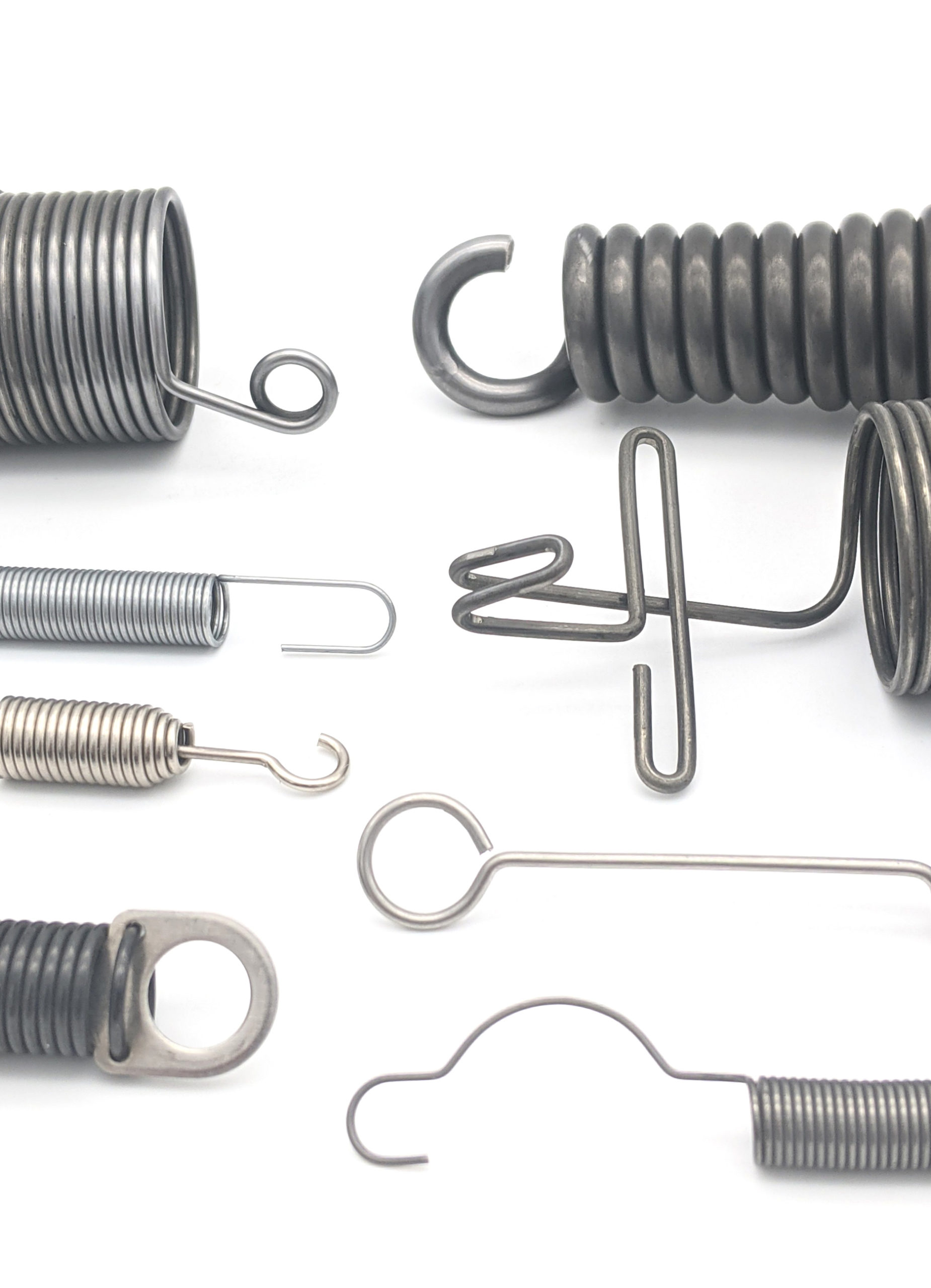Get unique, complex parts easily. No matter your requirements, Chaoyi Spring creates hard-to-produce coil springs and wire forms.
Let us help you create the custom wire form you need, from S-hooks and J-hooks to utility hooks and more.
We work closely with customers across a wide range of industries, helping them design and manufacture made-to-order parts.
Why choose Chaoyi Spring? We prioritize customer-focused collaboration, modern equipment and the latest technology to make your parts per print.
Find the information and guidance you need, from measuring a spring to learning about materials, placing an order and much more.
Imagine this: you're rushing out the door, grabbing your coffee, and heading to work. You reach for the garage door opener, but instead of the satisfying whoosh of the door


Imagine this: you're rushing out the door, grabbing your coffee, and heading to work. You reach for the garage door opener, but instead of the satisfying whoosh of the door rising, you hear a groan, a shudder, and then... nothing. The door sticks stubbornly in place. What's going on? More often than not, the culprit is a worn-out garage door torsion spring. These seemingly simple metal coils are the unsung heroes of your garage door system, tirelessly lifting and lowering your door thousands of times, often without you even noticing their hard work. But when they fail, you feel it immediately. This article dives into the world of garage door torsion springs, explaining how they work, why they're so important, and how to know when it's time for a replacement.

Garage door torsion springs are essentially coiled metal springs that store and release energy, enabling your heavy garage door to open and close smoothly. They're mounted above the door, typically on a shaft, and are responsible for counterbalancing the weight of the door, making it easy for you to lift and lower it manually. Imagine a spring that's tightly wound like a clock; when you release the tension, it unwinds, providing a force that propels the door upwards. When closing, the door's weight compresses the spring, storing energy for the next opening. The process happens in reverse when you close the door.
Torsion springs are a marvel of engineering, designed to endure years of constant use. They're made from high-quality, durable spring steel, often heat-treated to enhance their strength and resilience. Their size and strength are crucial for proper door operation, so they're custom-sized based on the weight and size of your garage door.
These coiled marvels play a crucial role in your garage door's safety and functionality:
**Smooth Operation:** They make lifting and lowering your garage door effortless, preventing strain on your door opener and ensuring a smooth, quiet operation. Without them, you'd have to exert a lot of force to open and close the door, potentially leading to accidents.
**Safety:** Torsion springs prevent the door from falling unexpectedly, minimizing the risk of injury, especially to children and pets. A damaged or broken spring can cause the door to come crashing down, leading to serious harm.
**Increased Lifespan:** By counterbalancing the door's weight, they reduce stress on the door opener, motor, and other components, prolonging their life and preventing premature wear and tear.
Garage door torsion springs are built to last, but like all mechanical parts, they eventually wear down. Here are some tell-tale signs that your torsion springs need attention:
**Uneven Door Movement:** Notice the door lifting or lowering unevenly, with one side higher than the other? This can be a symptom of a broken or worn spring.
**Loud Noises:** If you hear screeching, groaning, or popping noises when operating your garage door, it could indicate a malfunctioning spring.
**Slow Opening or Closing:** If your door takes longer than usual to open or close, or you notice it struggling to reach its full height, a failing spring might be the cause.
**Spring Breakage:** The most obvious sign of a problem is a visible break in the spring. This is a dangerous situation that should be addressed immediately.
Replacing garage door torsion springs is a job best left to professionals. It's a potentially dangerous task that requires specialized tools, safety equipment, and a thorough understanding of proper tension settings. Attempting to replace them yourself can lead to injury or damage to your door.
When you contact a garage door specialist, they'll assess your door, determine the correct spring type and tension for your door's size and weight, and replace the springs safely and efficiently.
While torsion springs play a vital role in your garage door system, their maintenance is often overlooked. Keep in mind that regular lubrication and inspections can extend their lifespan and help prevent unexpected failures.
By understanding the importance of garage door torsion springs and recognizing the signs of trouble, you can ensure the smooth, safe operation of your garage door, protecting both your home and your family. Remember, when in doubt, contact a professional garage door technician. They're the experts who can keep your garage door running smoothly for years to come.
Garage door torsion springs are a testament to the ingenuity of engineering, making your garage door's operation seem effortless. But their silent dedication can be easily taken for granted until they fail. By paying attention to the signs of trouble and contacting a professional for repairs or replacements, you can ensure the continued safety and functionality of your garage door, keeping your home secure and your peace of mind intact.
Browse some of the custom wire forms and springs that we manufacture. Don’t see what you need? We specialize in made-to-order products that meet your application requirements.
Visit Our GalleryNeed a custom wire form or coil spring? We make it work. Fill out the contact form and a representative will respond within 1 business day. If you have a PDF or CAD file, you can submit to request a quote.